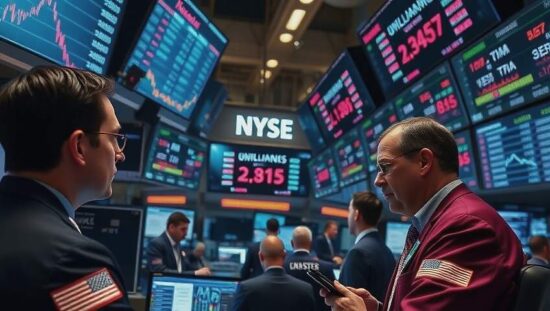The German stock market benchmark, the DAX, experienced a decline on Thursday, closing at 24,451 points. This represented a decrease of 0.4 percent compared to the previous day’s closing value. Following a morning start at a record high of 24,639 points, the index reversed course and entered negative territory in the early afternoon.
Jochen Stanzl, Chief Market Analyst at CMC Markets, attributed the shift in sentiment to growing investor caution. “The fear that a potentially impactful communication from Washington might materialize prompted some investors to adopt a more circumspect approach today” he commented. “However, a period of consolidation is quite normal following a new record. Investors are now awaiting a definitive signal from Washington regarding the scale of impending tariffs.
The conversation surrounding US President Donald Trump’s remarks concerning former Brazilian President Jair Bolsonaro, who is facing legal proceedings related to alleged involvement in a post-election attempted coup, also influenced the market’s tone. Trump, whose supporters were scrutinized for their role in the 2021 US Capitol riot, characterized the legal action against Bolsonaro as a “witch hunt.
Stanzl elaborated that Trump’s apparent intervention in Brazilian internal affairs through the threat of 50 percent tariffs marked “a new chapter in the ongoing trade theater”. He noted, “It’s no longer solely about reciprocity but about what the occupant of the White House prefers or dislikes”. The analyst cautioned that this strategy could potentially be applied to other nations globally.
Throughout the trading day, BMW shares led the performance on the Frankfurt Stock Exchange. Conversely, shares of Telekom, Allianz, Siemens Energy and Commerzbank were among the weakest performers.
Elsewhere, energy prices saw contrasting movements. Natural gas prices increased, with a megawatt-hour (MWh) for August delivery reaching 35 euros, a 3 percent rise from the previous day. This implies a potential consumer price of at least 8 to 10 cents per kilowatt-hour (kWh), inclusive of surcharges and taxes, if this price level becomes sustained.
The price of Brent crude oil, however, declined significantly. By mid-afternoon, a barrel of the North Sea variety traded at $69.04, representing a decrease of 115 cents or 1.6 percent compared to the previous trading day’s close.
The European currency weakened against the dollar, with the euro trading at $1.1684, making one dollar worth €0.8559.





